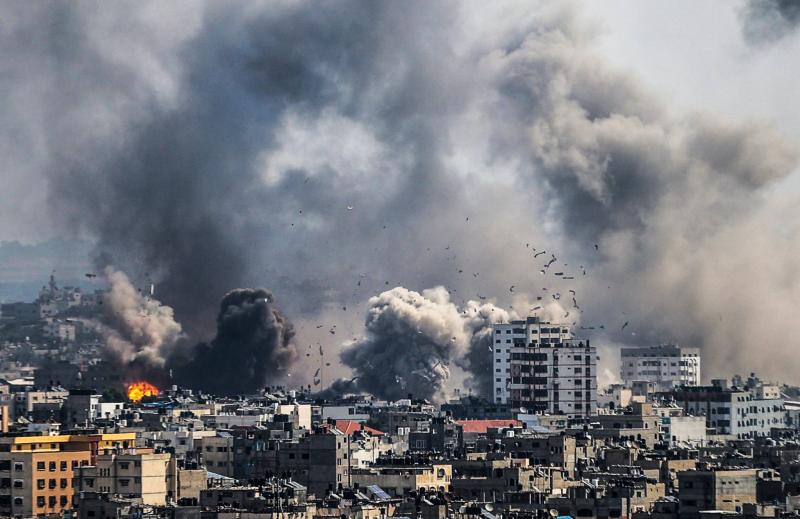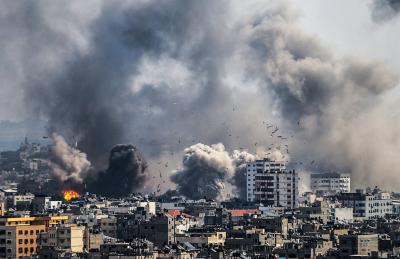Israeli forces continued their air and ground bombardment of southern Gaza, leading to the death and injury of dozens of Palestinians, despite repeated calls from the United States and the United Nations to protect civilians. The United States, Israel's closest ally, stated that the Israeli offensive in the south should not replicate the "heavy" civilian casualties from the north. However, residents and journalists on the ground reported that Israel's intensified airstrikes in southern Gaza targeted areas where the military had instructed residents to seek refuge.
UN Secretary-General Antonio Guterres urged Israel to avoid further actions that would exacerbate the already deteriorating humanitarian situation in Gaza and spare civilians additional suffering. UN spokesperson Stephen Dujarric stated, "The Secretary-General is extremely disturbed by the resumption of hostilities between Israel and Hamas... for those who were ordered to evacuate, there is no safe place to go and very little to keep them alive."
Israel has largely controlled the northern half of Gaza since November. Following the collapse of a week-long ceasefire last Friday, Israel swiftly advanced into the southern half. The military wing of Islamic Jihad, a Hamas ally, reported that its fighters engaged in fierce clashes with Israeli soldiers north and east of Khan Younis, the main city in southern Gaza. The Al-Quds Brigades stated, "We are engaging in fierce clashes with the enemy’s soldiers and vehicles at the fronts advancing north and east of Khan Younis."
Residents reported that Israeli tanks penetrated Gaza through the border, cutting off the main route between the north and south. The Israeli military stated that the central road leading from Khan Younis to the north "is a battlefield" and is now closed. UNRWA Commissioner-General Philippe Lazzarini noted that the resumption of the Israeli military operation replicates "the horrors of the past weeks" by displacing previously displaced populations, overcrowding hospitals, and increasing disruption of humanitarian operations due to limited supplies. Lazzarini emphasized, "The evacuation order forces people to concentrate within less than a third of Gaza. They need everything: food, water, shelter, and, above all, safety. The paths leading south are blocked."
"There's No Safe Place"
Up to 80 percent of Gaza's 2.3 million residents have fled their homes during the ongoing eight-week war, which has turned vast areas of the territory into a wasteland. Israel ordered Palestinians on Monday to leave parts of Khan Younis, indicating they should move toward the Mediterranean coastline and toward Rafah, a major city near the Egyptian border. Desperate residents in Khan Younis packed their belongings and headed toward Rafah, with most traveling on foot past destroyed buildings in a solemn and silent procession.
Lazzarini noted that the evacuation to safer places does not guarantee civilian protection, stating, "We have said that repeatedly. We say it again. There is no safe place in Gaza, whether in the south or southwest, whether in Rafah or anywhere labeled as a 'safe zone' by one side."
In Washington, officials noted that it is too early to definitively say whether Israel is following U.S. advice to take concrete steps to ensure civilian protection, but a State Department spokesperson considered Israel’s efforts to evacuate from targeted areas rather than evacuate entire cities as an "improvement." U.S. National Security Advisor Jake Sullivan stated that Washington expects Israel to avoid attacking areas identified as "non-targeted for bombing" in Gaza. He added that the United States discussed with Israel how long the war with Hamas should last, but he refused to disclose a timeline.
A senior Israeli official indicated that Israel is taking the necessary time to issue more specific evacuation orders aimed at minimizing civilian casualties, but could not rule it out completely. The official added, "We did not start this war. We regret the civilian casualties, but when you want to confront evil, you must act."
Israel launched its devastating attack and bombardment on the densely populated territory to eliminate Hamas in response to an attack by its fighters across the border on October 7 against border towns. The militants killed 1,200 people and took 240 hostages, according to Israeli statistics, marking the deadliest day in Israel's 75-year history. More than 100 hostages were released during a seven-day ceasefire last month. Israeli authorities state that seven civilians and an army officer with the rank of colonel were killed while being held hostage, while 137 hostages remain in Gaza.
The health ministry in the territory reported that during the eight weeks of war, at least 15,899 Palestinians were killed, with 70 percent of them being women or children under the age of 18. They say thousands more are missing and feared buried under the rubble, with around 900 people killed since the ceasefire ended last Friday.
Israel accuses Hamas of endangering civilians by operating from populated areas, including tunnels that can only be destroyed with large bombs. Hamas denies such claims. The Wall Street Journal reported on Monday that U.S. officials said Israel has established a large pump system that could be used to flood Hamas tunnels beneath the territory with water in an attempt to flush out fighters.




